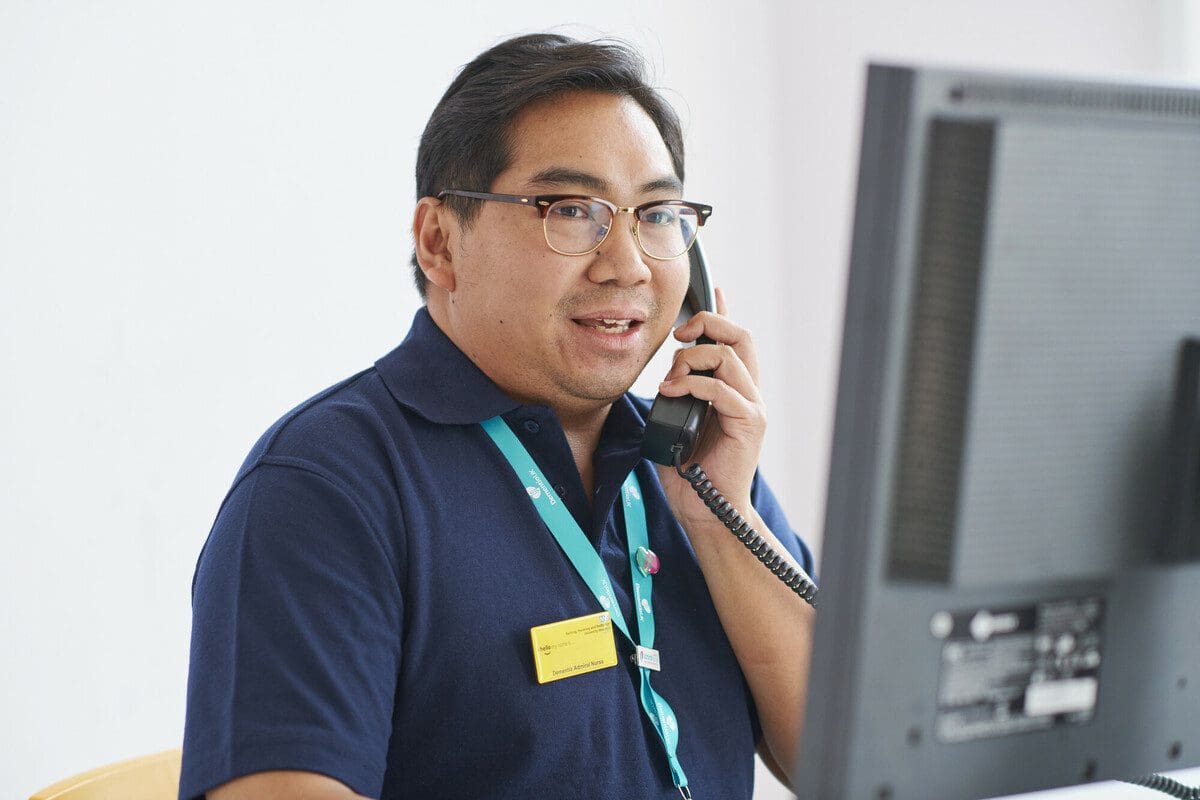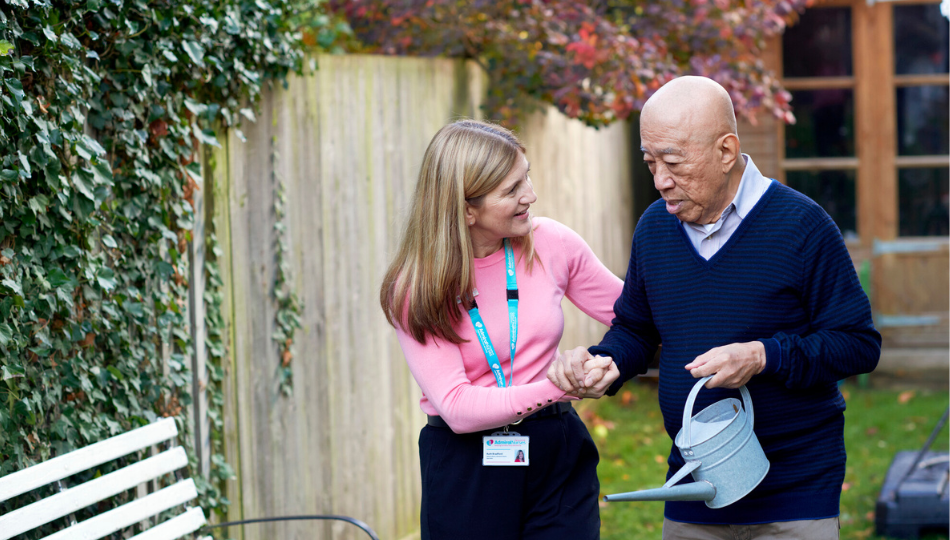
Admiral Nurse Dementia Helpline
Call or email our Dementia Helpline/Alzheimer's Helpline for reassuring and practical advice from our specialist team of Admiral Nurses.
With a team of six Admiral Nurses and launched in 2019, the Lincolnshire Admiral Nurse service is a partnership between Lincolnshire County Council, St Barnabas Hospice and Dementia UK. We spoke to Admiral Nurses Tom Rose and Sarah Bedward about their work and how they have adapted to cope with the demands of the pandemic.
Tom Rose: Lincolnshire is the fourth largest county in the UK with a high proportion of older people – 5% above the national average of people over 65. We know that the older population are at increased risk of having dementia, and there are additional health issues in the county which increases the prevalence of dementia.
We also know that families really struggle with understanding the changes caused by dementia and how to best support their loved one at challenging times, so we are definitely fulfilling a need that was previously unmet. The service is quite far-reaching in that it offers support from dementia specialist Admiral Nurses across the whole county.
Sarah Bedward: This role has been incredibly fulfilling for me in the sense that we are working across boundaries. A lot of referrals to the service are made through the Neighbourhood team. In those meetings, we identify really complex cases of dementia through close working with a range of health and social care professionals as well as those people working within the voluntary sector.
As we are firmly embedded within the community and are also based within St Barnabas Hospice, we can support families across the trajectory of the condition, which is a hugely rewarding part of the role.
Sarah Bedward: Referrals have rocketed with many families reporting increased levels of complexity given their inability to access day care and respite services. Many family carers are now supporting their loved ones not only from a geographical distance but an emotional one too. I am supporting one family carer in the London area who has obviously had to completely reshape the way she supports her relative in Lincolnshire. I provided encouragement to her around communicating on the telephone and some suggestions of meaningful activities her relative could do to mitigate against isolation.
Tom Rose: Transitioning from a more face to face level of support to telephone based has been challenging for carers and the team, but has been so vital to families who now feel real anxiety around accessing face to face services. Emotional support is so valuable for families with dementia at a time when they just don’t feel their needs are being listened to, particularly in a climate of reduced support services which includes much needed respite care. The amount of emotional support that Admiral Nurses are now required to do has massively increased within the service.
Sarah Bedward: Whether people are considering moving their relatives into residential care or have relatives in there currently, it’s been a challenge on all sides in this particular setting. For the former, it’s about validating the feelings that family carers and people with dementia may be going through and ascertaining what would cause them the greatest amount of stress. There’s also a lot of reassurance in the latter camp as many relatives have felt cut off from family members at this time. One of the many things we’ve been telling family members to do is maintain close communication with the care home and see for example if you’re able to get a photo taken of your family member in care.
Tom Rose: One means of ensuring continued support with carers has been via the use of video conferencing technology to enable face to face communication remotely. This has also presented challenges, in part due to a digital divide geographically and demographically, reluctance for some carers in accessing services in this manner and a transition away from in person contact. This has formed a piece of on-going research with Dementia UK about the longer-term use and implications of video conferencing technology within Admiral Nurse services.
As the service is hosted by St Barnabas Hospice, the Admiral Nurse Service in Lincolnshire has also been involved with Project ECHO (also hosted by St Barnabas). The ECHO model brings together clinical specialist teams (the hub) and care providers (the spokes). Through teaching sessions and case presentations, the spokes have the opportunity to discuss any cases which they have found challenging and determine the best course of action together. Sessions on aspects of dementia care have been facilitated with care homes, primary care and the wider community. Project ECHO has been shown to support and upskill care providers to improve health outcomes.
This project providing dementia specialist support to families in Lincolnshire has been made possible by an award from Postcode Community Trust, a grant-giving charity funded entirely by players of People’s Postcode Lottery.

Call or email our Dementia Helpline/Alzheimer's Helpline for reassuring and practical advice from our specialist team of Admiral Nurses.

Help us raise vital funds, improve care and support for families facing dementia and spread the word about our specialist dementia nurses.